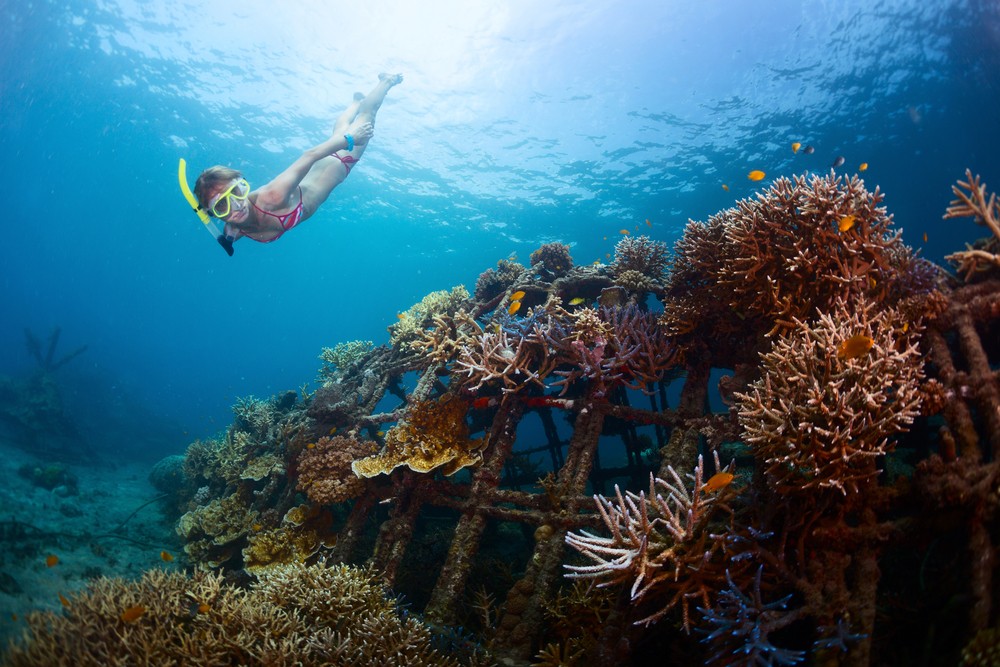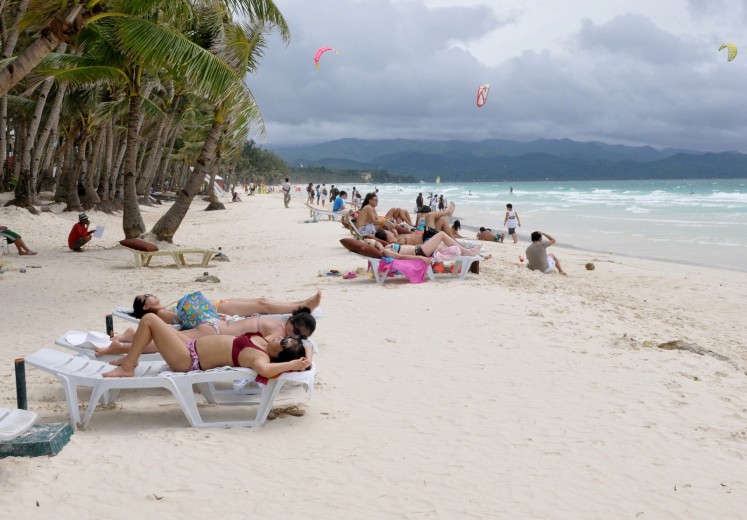Popular Reads
Top Results
Can't find what you're looking for?
View all search resultsPopular Reads
Top Results
Can't find what you're looking for?
View all search resultsEcotourism for ocean warriors: 5 places where travelers can help make a difference
If you’re eager to do your bit on your next holiday, here are five places in Indonesia and beyond where ocean-loving travelers can be part of the change.
Change text size
Gift Premium Articles
to Anyone
I
t’s no secret that the world’s oceans are struggling. Overfishing, damaging commercial fishing practices, an ever-growing micro-plastic problem and the effects of climate change are taking their toll on seas, oceans and waterways across the world.
In response to the crisis, many initiatives have sprung up to address ocean health, some of these promote ecotourism and welcome anyone who is eager to pitch in and help. Travelers can get involved in diverse programs that directly address the issues faced by our oceans.
In an increasingly globalized world, international travel is now something more people than ever before can enjoy. But flights and the effects of mass tourism carry a carbon and ecological footprint that each destination and traveler need to reckon with. The rise of ecotourism may provide some solutions.
If you’re eager to do your bit on your next holiday, here are five places in Indonesia and beyond where ocean-loving travelers can be part of the change.
Indonesia
Straddling both the Pacific and the Indian oceans and with more than 17,000 islands, it’s little wonder that beach-going travelers and divers flock to Indonesia’s rich waters and island havens. In Indonesia, there are multiple ways to get involved in ocean preservation, including these three organizations.
CERES Global Indonesia Trip
CERES, or the Centre for Education and Research in Environmental Strategies, is an Australian not-for-profit initiative that is based in Melbourne, Victoria. In 2020, CERES is returning to Indonesia to continue the work it started in collaboration with Indonesian environmental organizations in 2018 and 2019.
During the trip, travelers will help researchers and leading environmentalists collect water samples for ocean microplastics research. Participants will also learn more about the main causes and the complexities involved in finding political and community solutions to the global challenges facing the oceans.
Divers Clean Action
Divers Clean Action (DCA) is an Indonesian NGO that focuses on combating marine debris, particularly in Indonesia’s smaller islands. The group also aims to get youth more involved in ocean health and wellbeing and to enable both preventative and curative measures.
DCA runs regular two-day trips for divers to Harapan Island as part of the SOSIS (Save Our Small Islands) program under The Indonesian Biodiversity Foundation. Divers are equipped with a collection bag for when they’re underwater and on land, and they can visit turtle conservation programs, learn more about how waste banks and recycling facilities work, help plant corals, make eco-bricks and get acquainted with the local community.
Travelers should note that a diving license is not necessary and snorkelers are more than welcome to join the trips.
North Bali Reef Conservation
This NGO aims to give back to the oceans in the form of corals and works on preventative actions. Volunteers at North Bali Reef Conservation help plan and construct artificial reef structures on land. The NGO is very active and it has installed more than 3,000 artificial reef structures around Bali. These new reefs provide homes for corals and small fish species and draw in larger marine life. The reefs are placed in places where the natural reef has been destroyed.
In addition to their artificial reef program, North Bali Reef Conservation runs regular weekly cleanups on Tianyar Beach. Young local school students are encouraged to get involved, as the aim is to teach the future generation the importance of protecting the environment and educate youth about the damages wrought by plastic pollution.
Tourists sunbathe on the fabled beach of Boracay Island on November 9, 2008. (AFP/Jay Directo)The Philippines
Another firm favorite with divers and ocean lovers, The Philippines has a climate that draws divers and travelers from all over the world. With around 7,641 islands and miles upon miles of coastline, it’s fair to say that this archipelagic nation has the ocean on its doorstep.
Marine Conservation Philippines
Marine Conservation Philippines (or MCP for short) is dedicated to the preservation and protection of the coastal regions throughout the nation. MCP runs multiple projects at any given time and welcomes people from abroad to join their local community in working toward a change. Divers, academics, researchers, and tourists with some spare time should contact the organization and find out how they can help.
MCP also runs an eco-aware scuba program. They can teach travelers to become diver or advance their qualifications if they are already licensed. Picking up any rubbish along the way is part of the course.
Diving isn’t all that MCP has to offer — volunteers get involved in research, community outreach, and environmental education as well.
Read also: Fishing for plastic on Amsterdam's eco-friendly canal cruises
Egypt
Blessed with long stretches of coastline on both the Mediterranean and the Red Sea, Egypt’s beaches and reefs have been drawing sun-seekers from Europe and beyond for many years. However, it’s no secret that Egypt has a problem with plastic pollution. Travelers can do their bit for the Red Sea on their next beach trip.
Project Azraq
Based in Dahab in the Sinai Peninsula, grass-roots organization Project Azraq is an eco-friendly add on to your snorkeling or diving holiday. With a focus on reef monitoring, marine education, and ongoing clean ups, Project Azraq provides an eco holiday experience that allows participants to gain both theoretical and practical environmental knowledge and skills.
Its daily presentations teach guests about the key Red Sea species the project monitors. Reef monitoring — the ongoing collection of data pertaining to the underwater marine environment — is at the heart of their project and this data is passed to researchers.
By supporting Project Azraq, your tourism money directly funds essential research for the future health of one of the most important coral reefs in the world.
The organization is also an active member of PADI’s Dive Against Debris program and runs regular clean up dives.
***
The editor-in-chief of divein.com, Torben Lonne has spent the last year-and-a-half traveling all over Indonesia to find the best dive spots. He believes the archipelago has so much to offer divers and travelers that have yet to be published in any guidebook.








